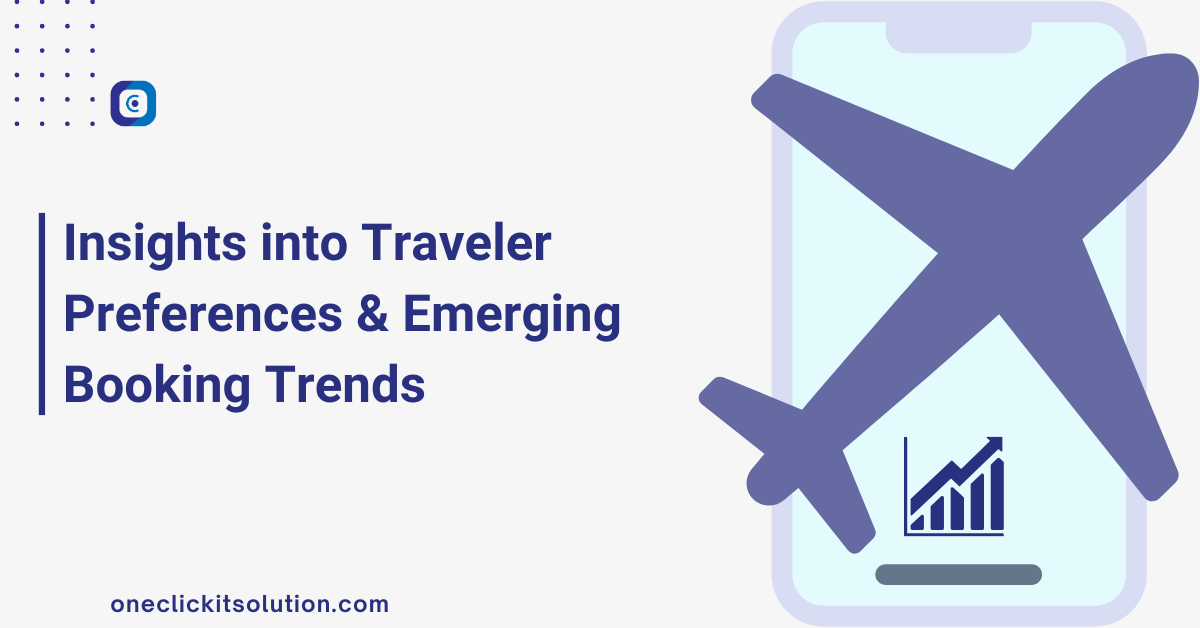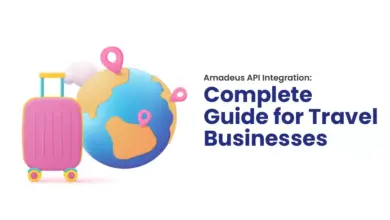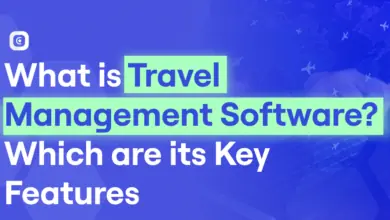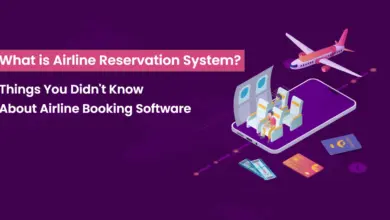Insights into Traveler Preferences and Emerging Booking Trends

Do you wish to know about the travel trends and consumer needs that drive the hospitality sector? Discover insights in this blog post regarding millennial travel preferences, business travel insights, and booking trends that will influence future travel demand forecasting and travel planning in 2025 and beyond!
Business service delivery practices are constantly changing in the travel business. Thus, being versed with contemporary travel trends, shifting consumer demands, and insights into the needs of distinct subsectors will prepare your business to prosper. This readiness may entail being versed in current trends, business travel insights, millennial travel preferences, and travel demand forecasting.
Technology has entirely transformed the way people research, plan, and book their travels, resulting in some new booking behaviors and traveler preferences. In the digital age, modern travelers cannot do without a seamless online experience and personalized recommendations.
Trends Global Survey revealed that 80% of global travelers believe it’s “ important to book trips entirely online,” with Millennials at 86% and Gen Zers, at 83%, leading the digital-first charge. Furthermore, 76% of global travelers want travel apps that eliminate friction and stress; essentially, they want the process to be as convenient and hassle-free as possible. Last year, online travel agencies were the most critical online tool for 80% of travelers, followed by search engines and social media, airline websites, and metasearch websites.
In 2023, 75% of leisure travelers were inspired by social media posts to select their destination. 5 hours were spent by travelers analyzing travel content on the internet within the last 45 days before the booking. Travelers are also price-sensitive when booking in over 90% of cases.
Other travelers’ reviews show that 29%, free Wi-Fi 24%, check-in 23%, and room photos 22% could also influence accommodation choice; 2022 saw corporations rate videos, photos, and amenities filming as the top decision influencing decision-makers.
Importance of Understanding Traveler Preferences and Booking Trends
The travel industry depends entirely on how well a company can match traveler preferences and booking trends. This is why:
1. Tailored offerings
Understanding what specific travelers are after allows a company to serve different demographics. What this could look like includes:
- What’s your destination: All-inclusive resorts for families, ecolodges for adventure-seekers.
- What kind of accommodation: 5-star hotels for high-net-worth personas, youth hostels for backpackers.
- What activities suit: guided cultural tours for culture vultures, fast-paced experiences for adrenaline junkies.
2. Meeting evolving expectations:
Travelers’ desires and booking styles are constantly changing. Staying ahead of them allows businesses to meet the market’s needs and desires. For example, travelers in this market often prefer an eco-friendly platform or flexible booking between some destinations.
3. Boosting customer satisfaction:
They will be most satisfied and preferred by the traveler. When travelers find what they desire, they will be satisfied and satisfaction leads to leaving better reviews. They improve and get more customers to promote your brand.
4. Optimizing marketing strategies:
Identifying preferences helps you know who is who. So, you will correctly direct advertising and motivate people in the desirable business. Both have many travelers penetrating the market; you must know your preferences and target your market to attract more customers.
5. Predicting demand:
Businesses should prepare in advance by analyzing the demand for each of the booking trends. Studying such data should allow you to understand when it is cheaper to move and when it is more expensive or at which time there are many travelers. As a business, you must keep reducing prices due to lacking customers.
Modern Traveler Preferences
Travel and hospitality are among human history’s oldest and most important service sectors. Since the creation of our civilization, people have had the urge to conquer lands beyond the swell and challenge themselves on the distant islands, the highest mountains, and eventually the sphere. It is, in all likelihood, the most fantastic of all our aspects. As a result, one of the many heartwarming and rewarding fields to work in today is travel and hospitality.
Unsurprisingly, this remains a prominent service industry that continues to influence all other human activities. The 21st century has increasingly reduced haste among people all over the globe. The remotest parts of the planet have become increasingly interesting, with new opportunities and communities. As travelers, like historically, but often diversely, create new and diverse challenges, the travel and hospitality industry must alter and evolve to adapt to the developing and changing realities that benefit business and society.
To understand the needs of today’s travelers, it is important to determine what traveler of modern times is, and the difference between travelers of the past, encompassing behavior, motivation, and psychology. The following are the five modern types of travelers:
1. The Plugged-In Traveler:
Millennial tech-savvy Travelers are a progressive generation. These people are comfortable with technology, as most were born with the internet by their side. They are extremely well-informed about current events and the conditions of the environment. They like to take their own trips rather than use the services of travel agencies or agents. Plugged-in travelers treat smartphones and the internet as essential tools for meeting needs.
2. Digital Detoxers:
Today, a new type of tourists prefer to escape from the demands of everyday life and go “off the grid” on holiday. At the same time, they still use the internet and other modern facilities to self-organise on the way to their destination. Furthermore, while traveling, they use cash and public transport, and only make purchases from locals.
3. Adventure Seekers:
The group of travelers rapidly rising in popularity is thrill-seekers and adventurers. They prefer to go on over 4-5 trips a year and do not visit mainstream travel locations. Adventure travelers travel with the recommendations of relatives and friends, giving such recommendations over 30% of the time. They are reaching an indifferent audience for traditional tourism, and in this regard, numerous travel agencies offer such people exciting and rather dangerous travel possibilities.
4. Family Holiday Makers:
Those traveling during peak seasons, as they are typically short of time and depend on specialists to make all arrangements for their trips. This audience is not especially interested in sun holidays, and spends money generously on their trips. These people are the target customers of almost all travel agencies as generate the highest profits.
5. Old-schoolers:
This segment consists of older travelers over 45 who are less technically knowledgeable than their younger counterparts. One of the key traveler personas travel brands create is old-schoolers, who are typically contacted via traditional offline mediums such as print and television since they spend less time online.
Technological Advances Influencing Booking Behaviors
Travelers are using an increasing number of technological innovations that are revolutionizing how they plan, research, and book their trips, significantly impacting booking behavior. The following are some technological advancements that have been instrumental in creating modern booking trends:
1. Mobile-Friendly Platforms:
The rise of smartphones and tablets also resulted in mobile bookings. Travelers demand mobile apps and websites, making trip planning, comparison, and booking possible from their devices. This factor pushed travel companies to create quality mobile platforms with high-level responsiveness and friendliness to the growing number of mobile travelers
2. OTAs and Metasearch Engines:
The likes of Expedia Group, Booking.com, and TripAdvisor have revolutionized the game. OTAs and metasearch engines collect and display data from several providers, making it simple for customers to compare prices and gather other relevant information, such as amenities and reviews from each source. The increased transparency has shifted the paradigm in favor of the traveler, as evidenced by their change in behavior regarding booking. Traditional travel agencies had to quickly come up with new tactics or die out.
3. Personalization and Targeted Recommendations:
Today, with access to data analytics and machine learning algorithms, travel companies offer personal recommendations based on travelers’ preferences and experiences. As a result, the booking experience becomes more relevant and tailored to the individual traveller’s needs, pushing him to go for it. Virtual reality & augmented reality.
4. Virtual Reality and Augmented Reality:
VR and AR are rapidly becoming more prevalent in the travel business. Potential visitors can already see the location, hotel, and entertainment before they book. Thus, these technologies help to change the probability of the decision to make in favor of booking by eliminating uncertainty.
5. Chatbots and Virtual Assistants:
Chatbots and virtual assistants can support travelers during the booking process, answer their questions, give them tailored ideas, and help people experience live booking in one session. Although the potential impact on booking behavior from these technologies is entirely online support, it is significant.
6. Blockchain and Cryptocurrency:
While the development and recognition of using this technology is limited, the possible use of it in the travel industry is simply exciting. If that happens, readers could “cheat the system” by changing how they pay for existing travel to use an alternative they created.
7. Internet of Things and Smart Devices:
Solving the problems of connectivity and automation is essential to improving the booking process in the travel industry with the assistance of IoT and smart devices. Smart home devices can facilitate connectivity when one books a trip using their voice; thus, users will likely be influenced by the changing process, which becomes more comfortable and user-friendly.
Future Predictions and Innovations in Travel Booking

1. Augmented Reality:
AR combines the digital and physical worlds by placing digital information in the real world. AR might be used in the hotel industry for an engaging hotel tour, viewing local area information, or even in a restaurant before eating. What if you could point the smartphone to a historical landmark, and it would tell you everything you need to know about it? The same applies to an exciting, informative hotel tour since you can view a hotel room before booking it.
2. Biometric Authentication:
Biometric authentication, such as fingerprints or facial recognition software, will enhance security and simplify hotel processes. This technology allows rapid check-ins and access control, promoting guest convenience and reducing operational burdens. In addition, it promises security by enabling only authorized people to enter restricted areas in the hotel.
3. Sustainable Travel:
At the same time, with increasing environmental concerns, today’s travelers are more prone to seek eco-friendly opportunities. However, booking a hotel and using carbon accounting software also involve supporting measures. Although they include energy management systems, waste decline technologies, and water conservation techniques to help measure, manage, report, and reduce ambient impact, they also require support. Ultimately, the need for hotels to be friendly and data-based solutions to demonstrate environmental concern is met.
4. Smart Speakers and Voice-Activated Assistants:
Innovations kept inching their way into places, and eventually, one will handle one’s own room’s acoustics, demanding its settings, or inquiring about the finest local haunts much as one’s heart wished without raising a finger. Smart speakers and voice-activated chatbots, combined with enhanced comfort and integration, could also provide hotels with the facilities to conduct services and more guesthouse suggestions directly according to the guests’ preferences.
5. Artificial Intelligence (AI) in Hotels:
Chatbots that can be addressed in real time and predictive analytics that could be utilized to inform hoteliers’ decision-making have the opportunity to enhance guest satisfaction and increase operational efficiency. AI could be used as a receptionist, for instance, or to handle uninteresting operational chores. In this situation, employees could focus on providing guests with better service. Additionally, AI data may allow the hotel to produce a few products and ensure they are always ahead of the curve regarding what travelers are likely to desire.
Conclusion
The travel industry only grows and develops, which requires an adequate response from businesses interested in an increased market share. Thus, the industry undergoes a considerable transformation caused by changes in consumer attitudes, new technological solutions, and one or another impact on social values.
However, as with other times and trends, they continue to change; hence, the main task of any company is to predict what consumers need and want. Digital solutions, customized products, and a focus on sustainability are not a brand’s call but necessary in the face of emerging Hospitality Industry Trends.
Stop dealing with these changes and drive the tour travel business to success. One Click IT Consultancy will help you utilize the latest technological innovations and solutions. We offer our clients implementation assistance, digital presence optimization, and data-driven solutions for businesses developing in the travel industry. Contact us right now!





